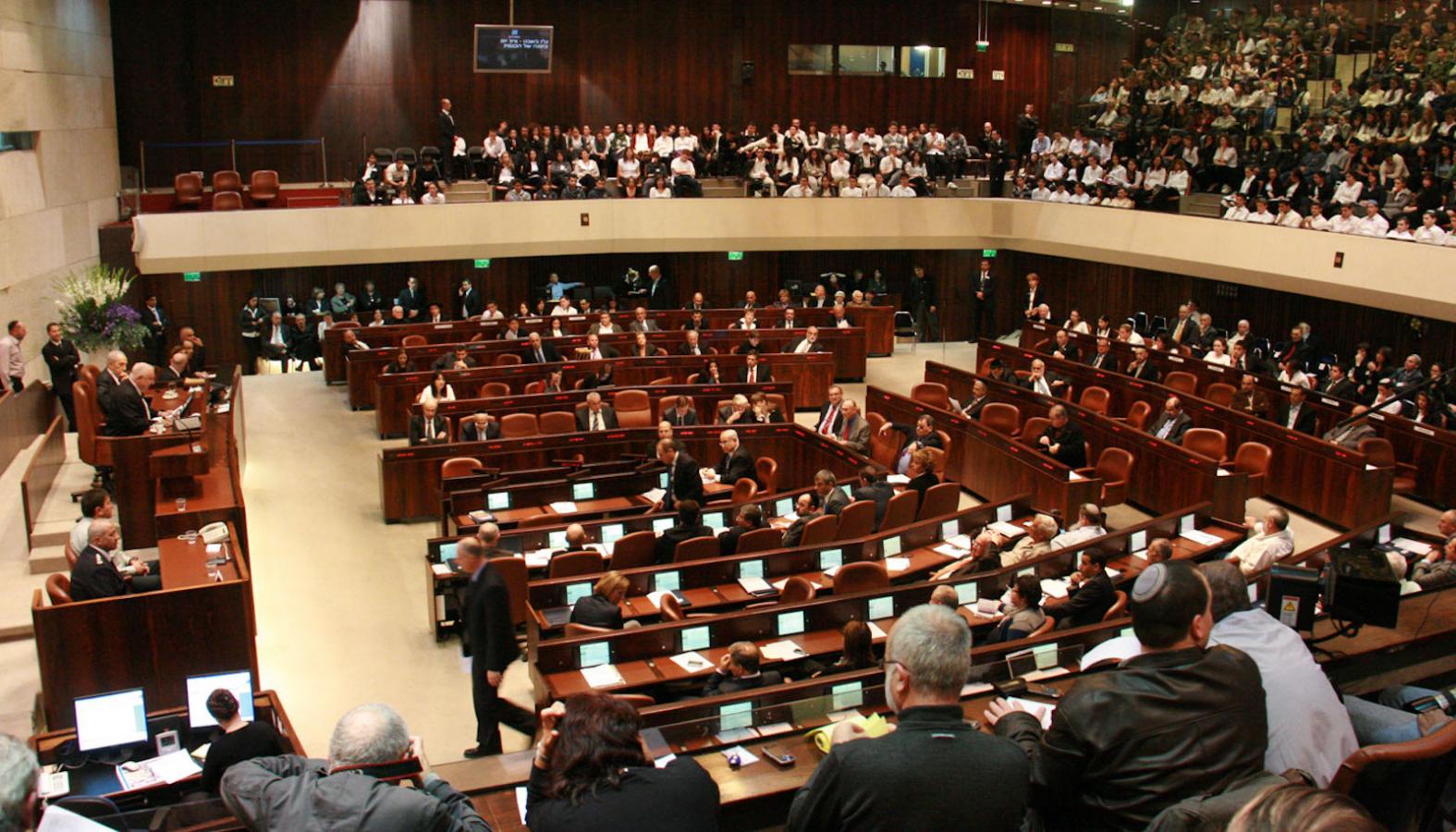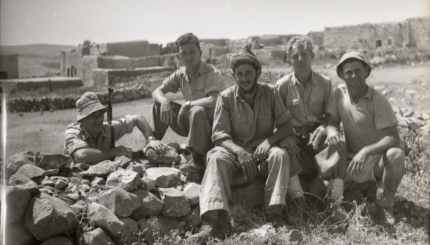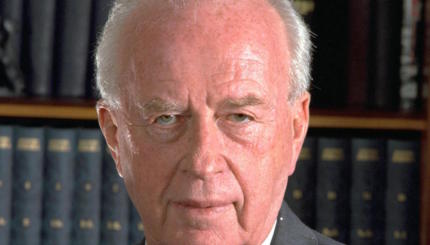Israel is a parliamentary democracy in which citizens cast their vote for political parties which are then awarded seats in the legislature based on the proportion of the vote they receive. As a result, understanding Israel’s political parties is crucial to understanding the larger political dynamics of the country as a whole.
For most of Israel’s history, elections were dominated by the two major political parties — the center-left Labor party and the center-right Likud party, or their various precursor parties. Labor, formed in 1968 by a merger of three other parties, was the more dominant of the two for the country’s first three decades, ceding power for the first time in 1977 to Likud, itself a product of the 1973 merger of several right-wing parties.
For the next two decades, the parties traded power while retaining overall dominance, commanding between half and two-thirds of Knesset seats between them. That began to shift in the late 1990s as a number of smaller parties began to win growing shares of the national vote. Israeli politics is highly fluid, with parties frequently forming alliances and running together, breaking up, and reconfiguring themselves.
Following elections in March, 2021, Likud was the largest party in the Knesset, followed by Yesh Atid, Shas and Blue and White. Labor, once the dominant force in Israeli politics and the party of Israel’s founding prime minister, David Ben-Gurion, had just seven seats in the Knesset.
Likud
Founded in 1973, Likud is currently Israel’s largest political party and the standard-bearer of right-wing Israeli politics. The party’s victory in the 1977 election, and the subsequent elevation of party chief Menachem Begin to the premiership, is considered a turning point in Israeli political history because it dethroned Labor after three decades in power.
Historically, the party has been skeptical about the possibility of peace with the Palestinians and supportive of the Israeli settlement enterprise, though Begin was the first Israeli prime minister to conclude a peace agreement with an Arab country when he signed a peace treaty with Egypt in 1979. The party has been historically liberal on economic matters, supporting the privatization of state-owned companies, low taxes and free trade.
Since 2005, Likud has been led by Benjamin Netanyahu, who became Israel’s longest-serving prime minister in 2019.
Yesh Atid
Hebrew for “there is a future,” Yesh Atid was founded in 2012 by Yair Lapid, a former television journalist who sought to position the party as the voice of centrist, secular Israelis, emphasizing domestic challenges like education and housing. The party’s early emphasis on drafting haredi Orthodox Israelis into the army — historically they had been exempt from compulsory military service — has evolved into broader support for redefining the relationship between religion and state in the direction of greater religious pluralism.
Shas
Shas is the largest of the Israeli religious parties and represents the interests of Sephardic and Mizrahi Jews. The party was founded in 1984 by Rabbi Ovadia Yosef, the late Sephardic chief rabbi of Israel, as the voice of a community long marginalized by Israel’s Ashkenazi establishment. Its principal concerns were traditionally securing public financial support for its constituents and promoting Orthodox Judaism. The party has been flexible on the Israeli-Palestinian conflict and been willing to sit in governing coalitions led by both Labor and Likud.
Blue and White
Blue and White is a centrist coalition led by retired general Benny Gantz. Formed in advance of the April 2019 Knesset election, the party managed to win 35 seats in the Knesset (tied with Likud), and performed well in two subsequent elections, in September 2019 and March 2020, before breaking up. It currently holds eight seats.
Yamina
Yamina (“to the right”) is an alliance of several right-wing and religious parties that is helmed by Naftali Bennett, a staunch nationalist and supporter of the settlement enterprise. The party opposes the creation of a Palestinian state and supports the extention of Israeli sovereignty in the West Bank.
Labor
Once the country’s dominant political force, Labor (or its precursor parties) was the political home of every Israeli prime minister between 1948 and 1977. The party was the architect of the secular socialist society that defined Israel’s early decades, but began a slow decline following the collapse of the Israeli-Palestinian peace process in the early 2000s, which Labor leader Yitzhak Rabin had championed. The party currently holds seven seats in the Knesset.
United Torah Judaism
UTJ is an alliance of Ashkenazi haredi political parties. The party is non-Zionist and its principal concern is the protection of the religious status quo in which Orthodox men are exempt from mandatory army service and the Orthodox rabbinate retains control of Israeli religious life.
Yisrael Beiteinu
Formed in 1999, this party represents the interests of Russian-speaking Israelis, a largely secular community that leans to the right on issues of diplomacy and defense policy. The party has sought to expand its base beyond the Russian-speaking community and takes a hard line on Israeli-Palestinian peace and supports land swaps in any eventual peace deal that would deprive many Israeli Arabs of their citizenship.
Other Parties
The remaining parties currently seated in the Knesset are small, with six or fewer seats. But since Israel is a parliamentary democracy that necessitates coalition building to achieve power, small parties can sometimes exercise outsized influence. Israel also has a number of additional parties that did not cross the %3.25 percent threshold necessary to win Knesset representation.
Religious Zionist: This hard-right Orthodox party opposes territorial concessions to the Palestinians and is led by Bezalel Smotrich, a controversial figure who opposes gay rights and made incendiary statements about stripping Israeli Arabs of their citizenship.
Joint List: Formed from an alliance of several majority-Arab parties, the Joint List supports equal rights for Israeli Arabs, the end of the Israeli occupation of the West Bank and the establishment of a Palestinian state.
New Hope: Established in 2020 by Gideon Sa’ar, a defector from Likud, the party includes several other former Likud members who largely share that party’s political ideology but oppose Netanyahu.
Meretz: Formed in the 1990s from a merger of several secular left-wing parties, Meretz occupies the left-most flank of the Jewish Israeli political spectrum, remaining staunchly opposed to the occupation and the settlement enterprise and in favor of a two-state solution to the Israeli-Palestinian conflict.
Ra’am: Also known as the United Arab List, Ra’am is an Islamist party that broke from the larger Joint List. It supports Palestinian statehood, but has focused largely on bread-and-butter issues facing the Arab Israeli community.
Updated June 2021.
Ashkenazi
Pronounced: AHSH-ken-AH-zee, Origin: Hebrew, Jews of Central and Eastern European origin.
Knesset
Pronounced: k’NESS-et, Origin: Hebrew, Israel’s parliament, comprising 120 seats.
Torah
Pronunced: TORE-uh, Origin: Hebrew, the Five Books of Moses.
Yehuda
Pronounced: yuh-HOO-dah or yuh-hoo-DAH (oo as in boot), Origin: Hebrew, Judah, one of Joseph’s brothers in the Torah.
Yitzhak
Pronounced: eetz-KHAHK, Origin: Hebrew, Hebrew name for Isaac.



